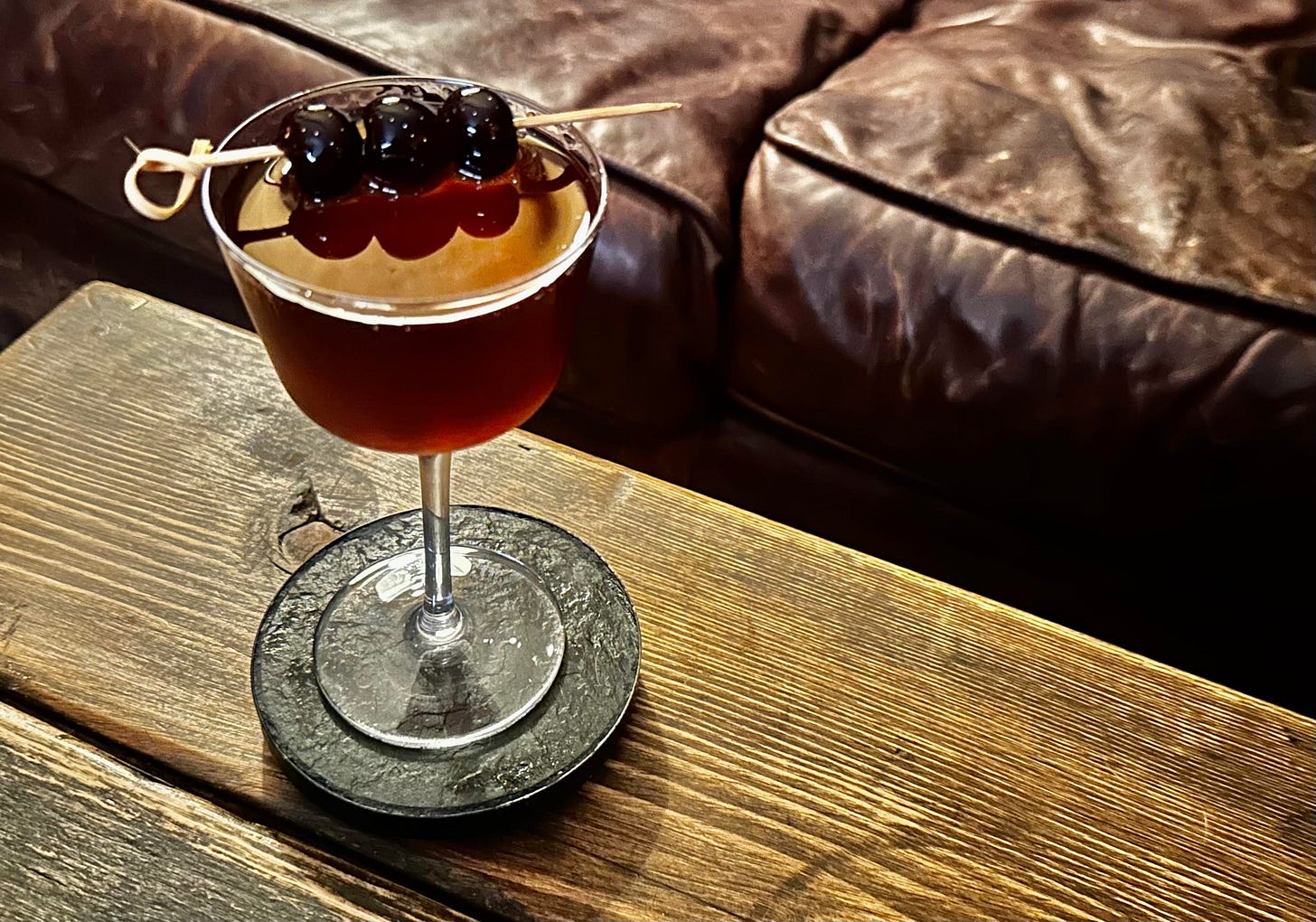The Manhattan Plus giveth and the Manhattan Plus taketh awa…actually, wait no. It just keeps on, er, givething.
In last week’s newsletter, we looked at the Bobby Burns, which is a prime example of what I call the Manhattan Plus family of drinks — Manhattan riffs with an additional or novel element beyond the usual whiskey/vermouth/dasher-bottle bitters trio. Sometimes these drinks contain just three ingredients, sometimes they contain a few more, but they are rarely elaborate in nature. The best examples
In this week’s newsletter, we’ll look at two more — partly to demonstrate how often this pattern repeats, and partly because this week’s cocktails are both rich, delicious, incredibly satisfying slow sippers, perfect for a cool winter evening.
These are both easy-to-make drinks that nonetheless deliver surprising, deeply complex flavor profiles: The first is essentially just a New Orleans-y version of the Bobby Burns, but with rye instead of Scotch whisky. The second is a three-ingredient wonder that relies on one of this newsletter’s favorite weird ingredients: the bittersweet, vegetal Cynar.
Both of these cocktails rely on similar underlying ratios, and they offer useful, compact lessons in how classic cocktail riffs are constructed, sometimes with just a handful of relatively easy-to-find ingredients.
But both of this week’s concoctions also drinks that every cocktail enthusiast should know and try, period, especially if you’re a fan of stirred-and-boozy riffs on the Manhattan.
Bridge and Table Crowd
Once again, I want to start with a structural review designed to show how the Manhattan Plus family of drinks works.
Since we’ve already gone over it, we’ll use the Bobby Burns as an example. You can think of the Manhattan Plus as a continuum from Manhattan to Rob Roy (a Scotch-based Manhattan) to Bobby Burns (a Scotch-based Manhattan with Bénédictine, and, in most cases, without bitters).
To diagram this out,1 the structural relationship looks something like this:
Manhattan —-—-—-—-—> Rob Roy —-—-—-—-—> Bobby Burns
2 dashes Bitters -> 2 dashes Bitters -> ½ ounce Bénédictine
1 ounce sweet vermouth -> 1 ounce sweet vermouth -> ¾ ounce sweet vermouth
2 ounces rye whiskey -> 2 ounces Scotch whisky -> 2 ounces Scotch whisky
This is obviously simplified in a number of ways: Some Bobby Burns recipes call for equal parts Scotch and vermouth, and some include bitters in addition to Bénédictine. Some people pour their Manhattans at 3:1. Some people like a Rob Roy without any bitters at all, because they are monsters, absolute monsters, and that is the last we’ll ever say about that. If you are intent on quibbling, you will find a way.



